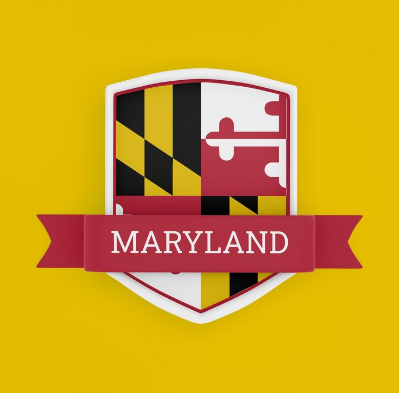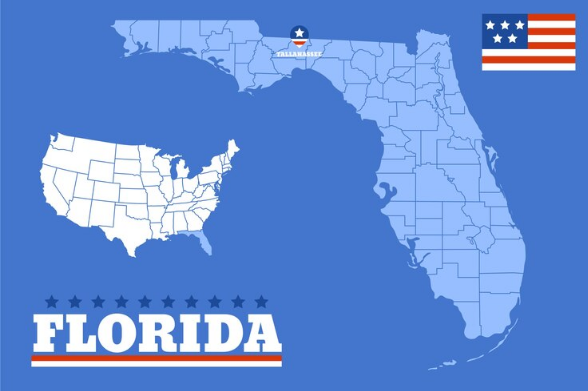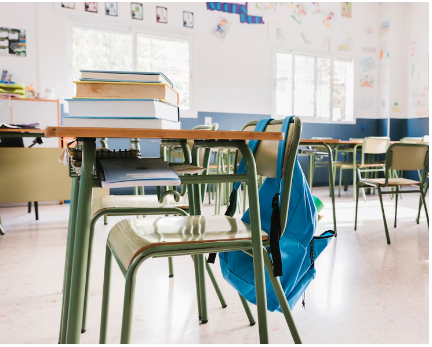Dyslexia Schools In Indiana [New Updates]

When evaluating dyslexia-friendly schools in Indiana, it's essential to apply a well defined, multi-faceted approach to ensure that these institutions truly support students with dyslexia. Schools should be assessed based on their ability to offer specialized programs, trained staff, evidence-based teaching methods, and access to assistive technology.
In Indiana, schools that are considered dyslexia-friendly often excel in these areas, providing a supportive environment that fosters academic and personal growth for students with dyslexia.
By collaborating with experts, collecting data through surveys and observations, and validating findings with parents and educators, we can confidently recommend schools that genuinely meet the needs of dyslexic students.
Continuous monitoring and feedback ensure that these recommendations remain relevant and effective, offering Indiana families reliable guidance in choosing the right educational setting for their children.
This article will guide you through some of the top dyslexia-friendly schools in the area, providing you with the information you need to make an informed decision for your child's education.
The schools recommended have been carefully evaluated based on their specialized programs, the dedication of their staff, and their use of proven teaching methods.
We’ve spoken with parents, educators, and experts, and seen firsthand what works. The schools that made the list have shown a real commitment to helping students with dyslexia succeed, both academically and personally.
We want to make sure you have the information you need to choose a school where your child will feel supported, understood, and encouraged to reach their full potential.
What is the Percentage of Dyslexia Amongst Students In Indiana?
National estimates place dyslexia prevalence between 3–7% of the population when narrowly defined, but as high as 15–20% when considering broader reading challenges (wibc.com).
According to the International Dyslexia Association and other literacy-focused groups, roughly 15–20% of individuals display characteristics of dyslexia, including difficulties with word decoding, reading fluency, and spelling (nwea.org).
Legislation and Policies for Dyslexia In Indiana
1. House Enrolled Act 1108 (2015)
Pre-service teacher training requirement: HEA 1108 mandates that aspiring teachers receive instruction on recognizing dyslexia and other reading disorders within their teacher education programs (indianahouserepublicans.com).
2. Senate Enrolled Act 217 (2018)
Universal K–2 dyslexia screening: Indiana schools must include dyslexia risk indicators in their reading plans. Students must undergo a simple Level I screening if at risk, followed by a more detailed Level II screening if indicated .
Mandatory interventions: Students identified as at-risk must receive evidence-based, multisensory interventions through a Response to Intervention (RTI) framework (indianasenaterepublicans.com).
Parental notification: Schools are legally required to notify parents of screening results and offer diagnostic evaluations as part of special education eligibility .
Specialist staffing requirements:
By July 1, 2019, the Indiana Department of Education had to hire at least one dyslexia-trained reading specialist (indianasenaterepublicans.com).
By the 2019–2020 school year, each district or charter must employ at least one dyslexia-trained reading specialist (indianasenaterepublicans.com).
3. Indiana Code (IC 20‑35.5 series)
Dyslexia screening & inclusion
Level I & II screenings must trigger clear parent notification and provide information on dyslexia characteristics and accommodations.
If dyslexia traits are found during an IEP evaluation, they must be included in the evaluation and discussed in case conference meetings (law.justia.com).
Evidence-based intervention standards (IC 20‑35.5‑4‑1)
Requires explicit, direct, systematic and cumulative instruction using multiple sensory pathways.
Supports individualized, intensive, meaningful reading and writing instruction based on student needs (indianacrime.com).
Professional development
Mandates dyslexia awareness training for all K–12 teachers via IDOE’s Science of Reading & Dyslexia Toolkit (in.gov).
4. House Bill 1590 (2023)
- Funding & licensing reforms
Expands benchmark assessments for reading remediation, including dyslexia screeners.
Supports the “science of reading” license requirement for Pre-K–6 and special education teachers, aligning with dyslexia identification and intervention methods Sources: (reddit.com, legiscan.com).
What Type of School Is Best For a Dyslexic?
The ideal schools are the ones where students can learn without all that unnecessary stress weighing them down.
Plus, these schools are all about recognizing the unique strengths that come with dyslexia, like creativity and thinking big-picture.
If your kid has a special interest, whether it's engineering, chess, music, or anything else under the sun, these schools give them the time and space to chase their passions.
Forget about just hunting for "reading programs" right away because, believe it or not, dyslexic students often thrive when their reading lessons align with their interests.
Now, here's the deal: if your child isn't loving school and isn't coming home all pumped up about learning, it might be time to explore other options. And guess what? That's perfectly okay – even awesome.
You can take your child out of a place that doesn't fit, even if you don't have the next school lined up right away. It's a powerful message to your child that you're in their corner and ready to support them.
Let them take a breather, catch up on some sleep, and in the meantime, you can figure out the next steps together.
Looking for learning difference/dyslexia friendly schools? Here are some must ask questions to help you pick the right dyslexia friendly school for your child.
Before attending your meeting, do a bit of background research. The more you know about dyslexia, teacher education programs and intervention programs, the more targeted you can be with your questions and the better you will understand the answers.
Support Services for Students with Dyslexia in Indiana
1. Statewide Legislation & Mandates
– Universal Screening & Early Intervention
Indiana law requires yearly universal dyslexia screenings for all students in K–2, with further “Level I” assessments when risk is identified. Intervention must be evidence-based and multisensory. This is mandated under Indiana Code 20‑18‑2‑3.5 (2020) and Senate Bill 217 (2018).
– Trained Specialists & Teacher Awareness
Each school district must employ a reading specialist trained specifically in dyslexia. All teachers must receive professional awareness training on dyslexia characteristics and appropriate accommodations (stateofdyslexia.org).
2. School & District-Level Implementation
– Screening Tools & Procedures
Many Indiana districts (e.g., Valparaiso, Marion Community Schools) follow the state’s universal screening protocols, assessing phonemic awareness, decoding, alphabet knowledge, rapid naming, and encoding. Parent permission is required for Level I screenings and interventions (valpo.k12.in.us).
– Structured Intervention Approaches
When a student is identified "at risk," schools provide intensive, multisensory instruction—following Orton-Gillingham or equivalent science-of-reading frameworks—with documented progress reports each school year.
3. Community-Based & Nonprofit Organizations
– Dyslexia Institute of Indiana (DII)
A nonprofit (501(c)(3)) offering testing, tutoring (including summer Camp Delafield), and professional development in multisensory reading instruction. They’re part of the International Dyslexia Association network (diin.org).
– Indianapolis Children’s Dyslexia Center (CDCOI)
Provides one-on-one, multisensory tutoring (K–12) at little to no cost. Accredited by IMSLEC and ALTA, their instructional protocol is nationally recognized (cdcoi.org).
– ETS Dyslexia Specialists (Anderson, IN)
Offers screening, assessment, and Orton-Gillingham-based tutoring. Accepts Educational Scholarship Account (ESA) funding, allowing flexible use of public funds for dyslexia services
Parent Advocacy & Support
– Decoding Dyslexia Indiana (DDIN)
A statewide grassroots parent movement (established in 2013) focused on awareness raising, educational events, advocacy, and connecting families with resources (diin.org).
– IN*SOURCE
Indiana's federally funded organization helps families navigate special education law, IEP/504 plans, liaison supports, and offers webinars on dyslexia (cdcoi.org).
– State DOE Dyslexia Parent Guide
Published by Indiana's Department of Education, this PDF outlines definitions, signs, intervention methods rooted in the science of reading, and additional national resources (in.gov).
5. Supplemental & Assistive Resources
– Learning Ally
Nonprofit offering audiobooks, educator toolkits, consultations, and training—beneficial for students with dyslexia .
– International Dyslexia Association (IDA)
At both national and Indiana-branch levels, IDA provides teacher training, fact sheets, webinars, events, and advocacy (diin.org).
– Yale Center for Dyslexia & Creativity
A leading research institution offering evidence-based insights and resources for educators and families (in.gov).
– Learning Disabilities Association of Indiana (LDA-IN)
Provides local support, information, and a network of professionals for families and educators (indianadisabilityresourcefinder.org).
Best Dyslexia schools In Indiana
1. Fortune Academy (Indianapolis, Grades 1–12)
- Reputation: The only school in Indiana accredited by the Orton‑Gillingham Academy (OGA)—a gold-standard in dyslexia education (cdcoi.org, indyschild.com).
- Overview: Multi-sensory, small class sizes (6:1), on-site speech/language pathologists, PT/OT services (thefortuneacademy.org).
- Website: Official site details methodology, enrollment, and financial aid (indyschild.com).
2. Pinnacle School (Bloomington, K–12)
- Listed among U.S. dyslexia schools via The Dyslexia Initiative.
- Programs: Comprehensive academic support tailored to language-based learning differences.
- Next steps: Visit Pinnacle’s website for admissions & curriculum info.
3. Dyslexia Institute of Indiana (Indianapolis)
- Reputation: 501(c)(3) nonprofit offering remediation & summer camps (thefortuneacademy.org, ortonacademy.org).
- Services: Tutor training; day programs; Camp Delafield for immersive summer learning.
4. Indianapolis Children’s Dyslexia Center
- Reputation: Part of the nationally recognized Scottish Rite Children’s Centers network (diin.org).
- Services: Free/low-cost multisensory Orton‑Gillingham tutoring post-school for grades 1–12.
5. Washington Community Schools (Washington, IN)
- Public-school program: Complies with Indiana screening laws (HEA 1108/217)
- Instruction: Universal screening in K–2; subsequent Orton‑Gillingham interventions.
6. Harmony School (Avon area, PreK–12)
- Reputation: Low student–teacher ratio; personalized instruction for learning differences
- Culture: Emphasizes peer support across age groups.
7. Cathedral High School (Indianapolis)
- Reputation: Four-time U.S. Blue Ribbon School, including 2022.
- Support: Features a Language Support Program with accommodations and specialized classes for dyslexic students.
8. Indiana University Certificate in Dyslexia (Online)
- Reputation: Indiana Dept. of Education–approved training program (en.wikipedia.org, education.indiana.edu).
- Highlight: Trains teachers in evidence-based dyslexia intervention strategies for K–12 credential renewal.
Website: https://education.indiana.edu/programs/graduate/certificate/dyslexia-online.htm
9. IDA Indiana & Decoding Dyslexia Indiana
- Reputation: State chapters of reputable nonprofits focused on advocacy, teacher training, and community support .
- Resources: Provide listings of schools, tutoring centers, and legislative updates.
Website: https://in.dyslexiaida.org/
10. Lindamood‑Bell & Commonwealth Learning Center (Tutoring)
- Reputation: Nationally recognized reading/language remediation centers with Indiana branches .
- Approach: Utilize structured, multisensory methods aligned with Orton‑Gillingham principles.
11. Dearborn Academy / Eagle Hill–Style Programs
- Though based in other states, Indiana families often access these via regional branches or partnerships. They’re frequently listed in Indiana dyslexia resource guides (cdcoi.org).



